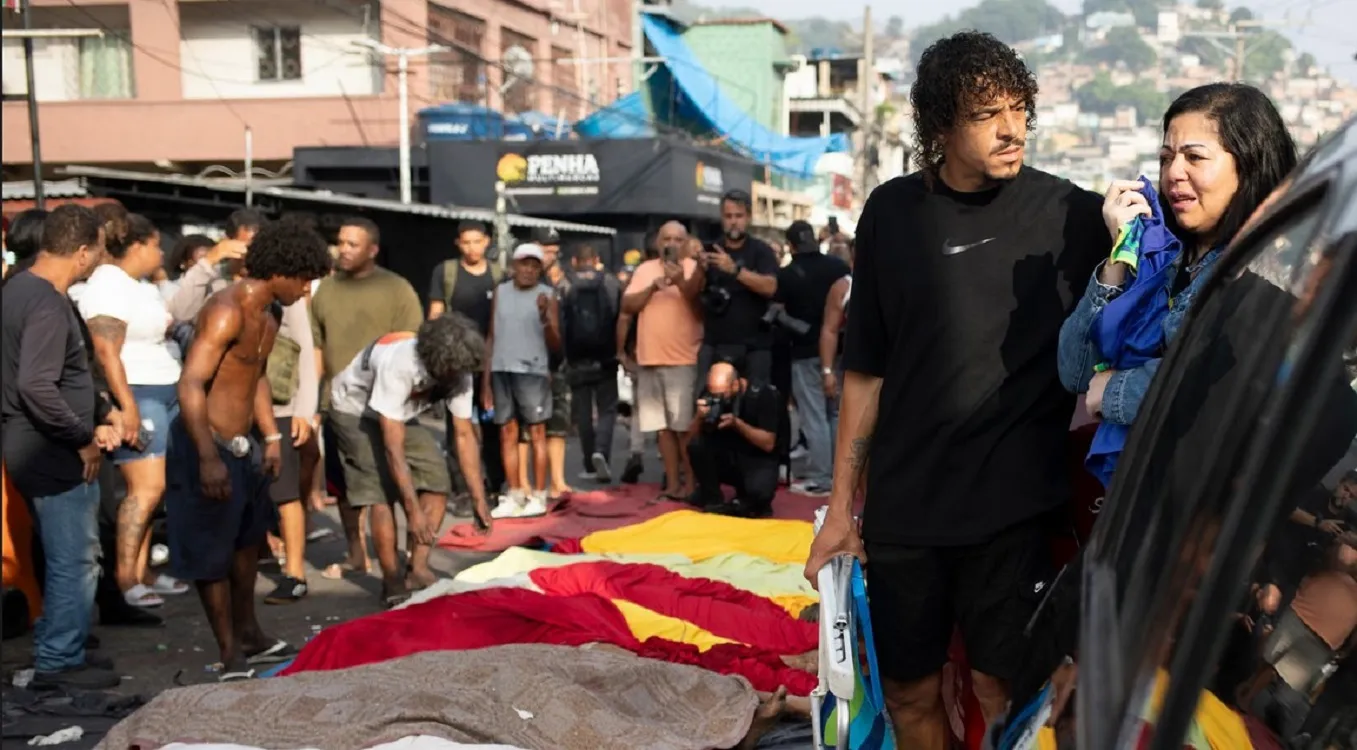- National
- Bangladesh
- Business
- International
- Sports
- Entertainment
- Politics
- Technology
- Life Style
- Religion
- Opinion
Tuesday, 03 March 2026



The state of Rio de Janeiro is grappling with the aftermath of the deadliest police operation in Brazilian history, launched earlier this week in the Complexo da Penha and Complexo do Alemão favelas.
The multi-day raid, targeting the powerful Red Command drug faction, has resulted in a confirmed death toll of 121 people, including four police officers. However, in a recent update, the Public Defender’s Office reports a higher casualty figure of 132 and has formally requested access to all forensic evidence amid widespread claims of summary executions.
Thousands of residents and civil rights activists gathered in the Vila Cruzeiro favela on Friday to protest the violence, labeling the operation a "massacre" and demanding the removal of Governor Cláudio Castro. Protesters carried banners declaring "Favela Lives Matter" and condemned the security policies that have turned poor communities into "war zones."
In stark contrast, Governor Castro and police chief Felipe Curi have defended the operation as a major "success" and a legitimate response to the "expansionist fury" of the Red Command, with Curi claiming most of the deceased had criminal backgrounds.
This stance has been backed by several rightwing politicians, while security experts and human rights groups, including Amnesty International, have condemned the raid as a "pointless bloodbath" that will fail to curb organized crime.
The operation has triggered immediate and high-level judicial intervention. The Supreme Court Justice Alexandre de Moraes has scheduled a hearing for November 3, mandating that Governor Castro and the heads of the military and civil police provide detailed information regarding the planning and execution of the lethal raid.
This formal inquiry underscores the intense scrutiny facing Rio's security apparatus following the unprecedented scale of the violence.
Comment